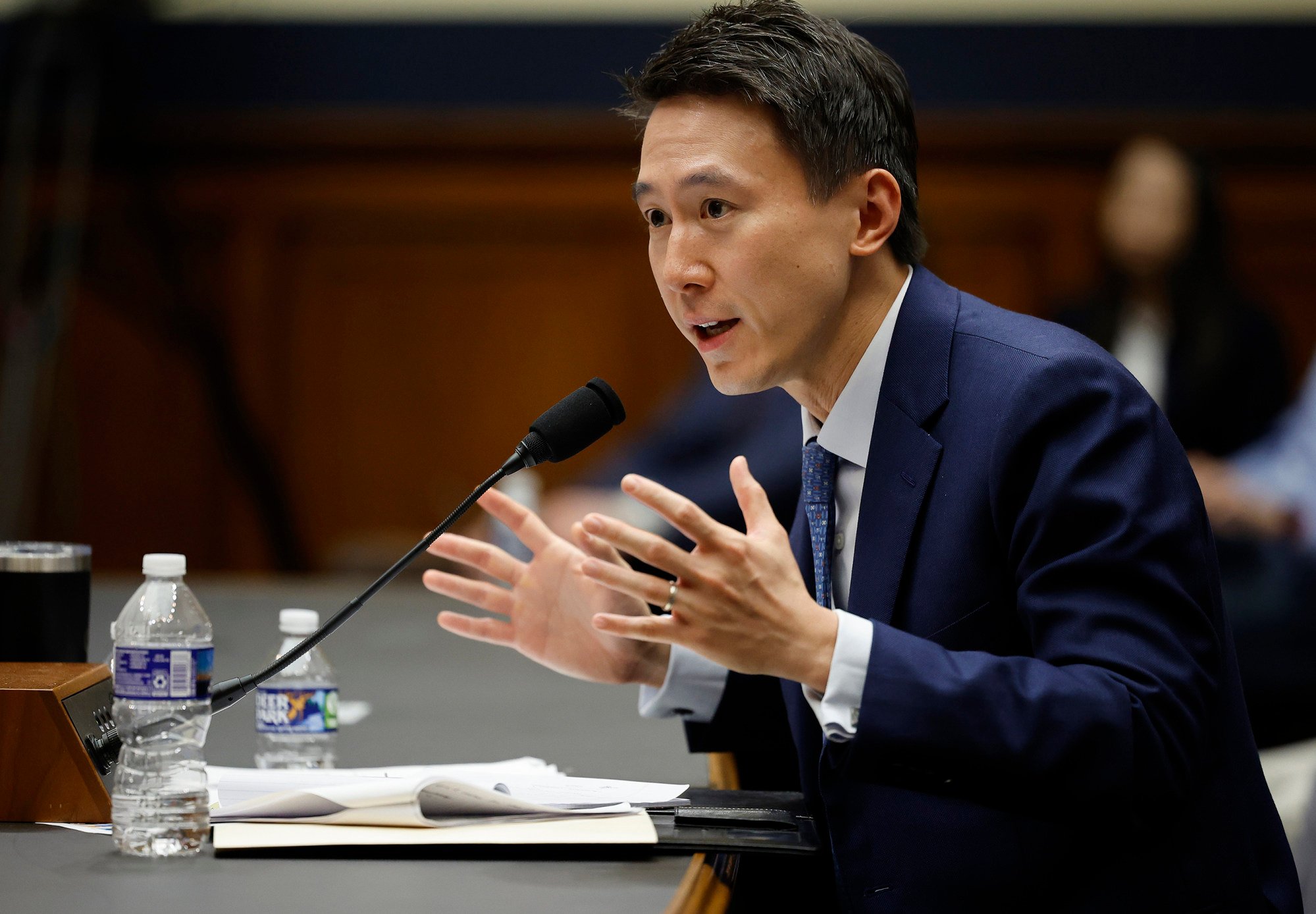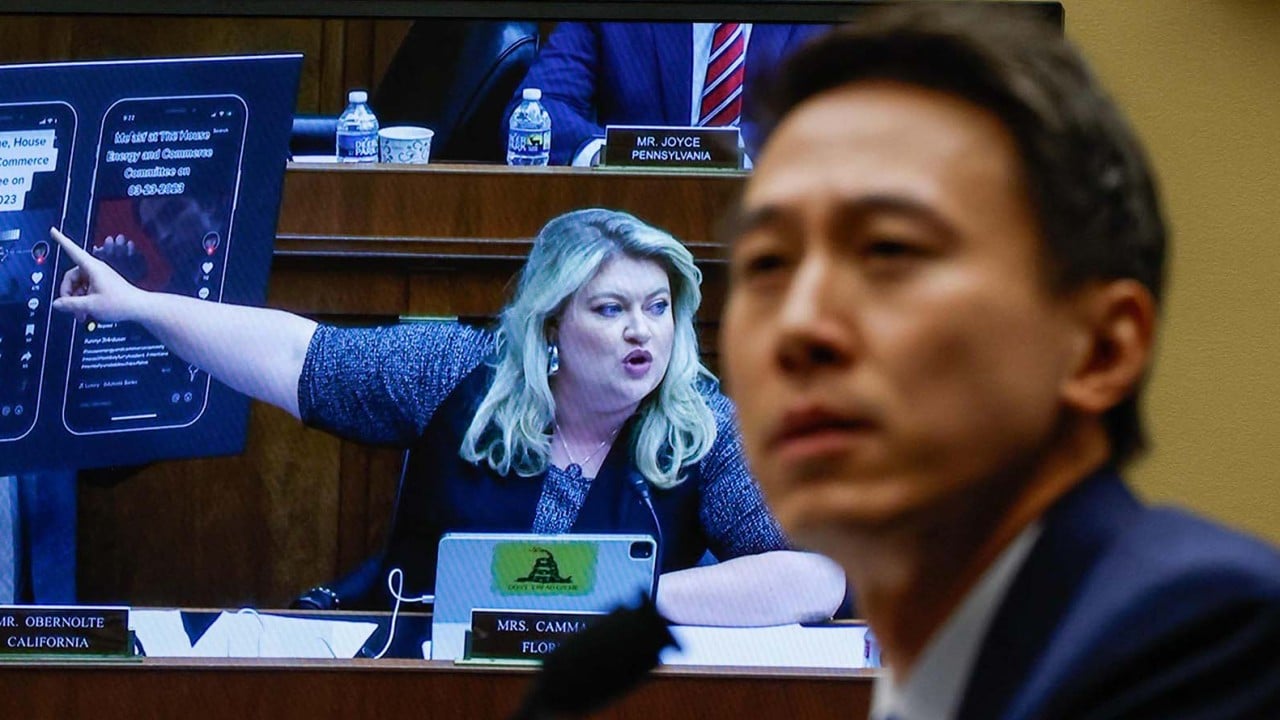
Best option for regulating TikTok is with industry and public consultation
- There are serious and valid concerns about TikTok given that firms with a presence in China are obliged to hand over data if directed to by authorities
- But Asian officials serious about dealing with spying and data privacy must adopt a more holistic approach to find solutions. The first step would be not to follow America’s lead
On the eve of TikTok boss Chew Shou Zi’s March 23 testimony before the US Congress, the BBC likened the encounter as akin to the Singaporean national “opening a lion’s mouth and placing his own head in it”.
Social media reaction across Asia, including Chew’s home country, showed that many in this part of the world came away with a completely different perspective.
The lawmakers’ “grilling’ in fact showed them – at least to TikTok’s army of youthful, digitally savvy users – as being detached from technology.
Several questions posed to the tech executive were bewildering. Readers must know what I am talking about.
If not, a simple Google search will show viral snippets from the hearing, including when the Republican congressman from North Carolina Richard Hudson quizzes Chew on whether TikTok used the home Wi-fi network of a user.
Initially stumped, the 40-year-old responded: “Only if the user turns on the Wi-fi, I am sorry, I may not understand the question.”

It was a pity that what seemed to be a committee of Luddites were tasked with quizzing Chew. It was a missed opportunity for US lawmakers to address the important issues surrounding the dominant role that Big Tech is playing in everyday life globally.
TikTok specifically is in the news because Western officials fear the partly Chinese-owned app could be used to spy on citizens and to spread misinformation that compromise national security.
The US and its staunch allies the UK, Australia, Canada and New Zealand that make up the “Five Eyes” spying alliance have been most vocal in airing these concerns.
In what seemed to be a coordinated effort in recent weeks, these countries have loudly announced they were banning TikTok from government devices.
TikTok fined US$15.8 million by UK privacy watchdog over misuse of child data
In Asia, policymakers serious about dealing with spying, data privacy and the online harms that social media could pose on the young must adopt a more holistic – less ideology-driven approach – to find solutions.
The first step would be not to follow America’s lead. Yes, there are serious, I would say very valid, concerns about TikTok given that companies with a presence in China are obliged to hand over data if directed to by authorities.
But equally troubling is Washington’s powers to compel its largest tech firms such as Google, Meta and Apple to assist its snooping on foreign nationals overseas.
Section 702 of the Foreign Intelligence Surveillance Act allows US intelligence agencies to carry out mass warrantless surveillance on email and other online communications.
As Asher Wolf, an Australia-based tech researcher and privacy advocate said in a recently published Al Jazeera report, these powers are a show of how for the US it is a case of “rules for thee but not for me”.
“So the noise the Americans are making about TikTok must be seen less as a sincere desire to protect citizens from surveillance and influence operations, and more as an attempt to ring-fence and consolidate national control over social media,” Wolf was quoted as saying.
I could not agree more. Therefore, if countries in our region are serious about regulating social media platforms, they should do so via legislation that does not target entities based on who owns them or where they are domiciled.
Singapore is one such example.
Singapore says TikTok use on government devices only on ‘need-to basis’
After consulting and getting assent from major platforms, the city state’s parliament passed a bill in November giving authorities the power to force social media networks to comply with rules limiting harmful content.
It has also passed the anti-fake news act and the foreign interference act, citing growing concerns about such issues in the digital age.
The laws drew international criticism for their potential to curb free speech.
But, as I see it, if those in power are serious about regulating social media platforms, they will see that laws drafted with industry and public consultation is the least bad option.
Bhavan Jaipragas is Asia Editor at the Post.



